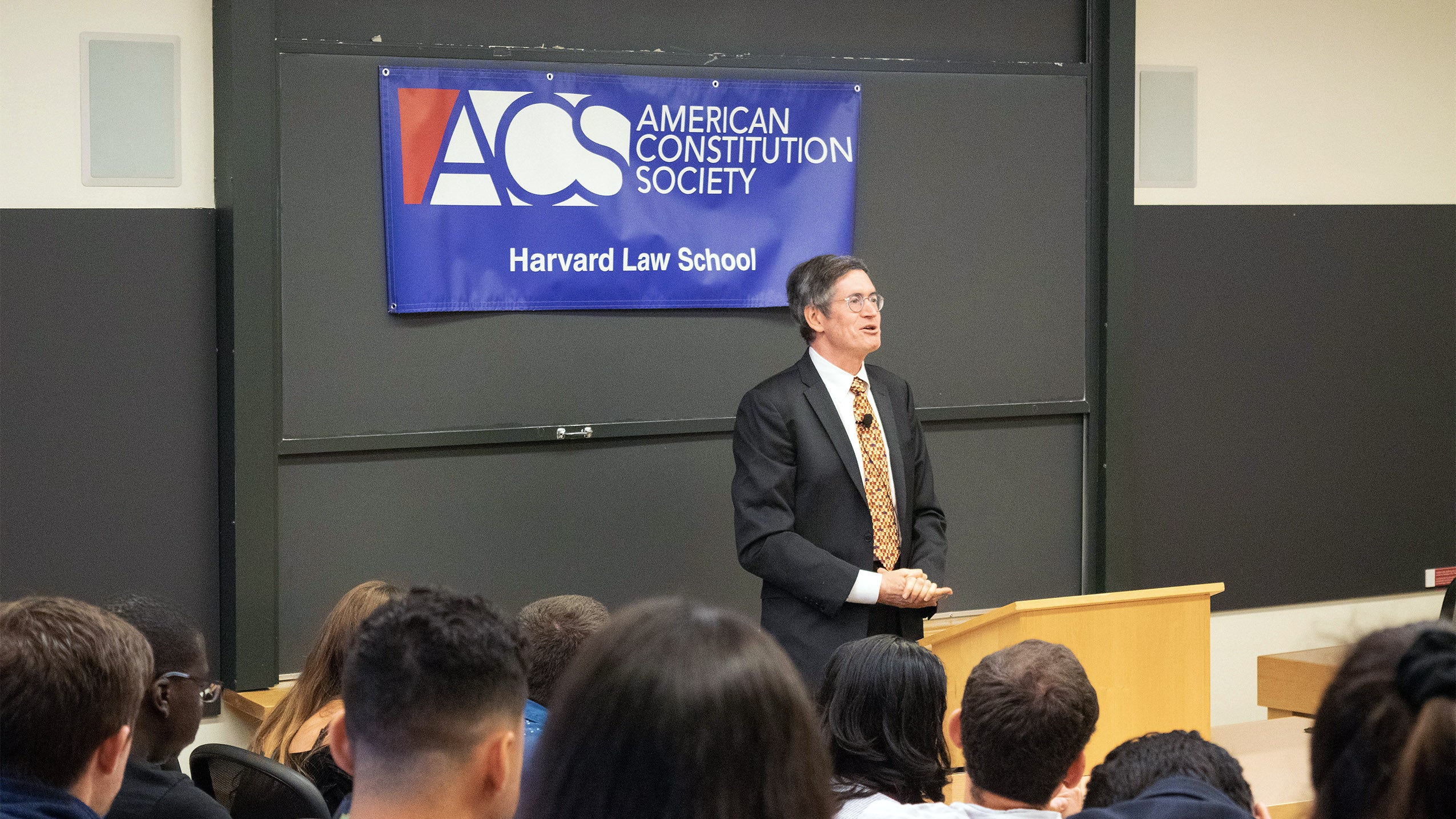On Sept. 17, 1787, the framers of the U.S. Constitution gathered in the Assembly Room of the Pennsylvania State House in Philadelphia to sign the historic document that has become integral to America’s identity.
Today the Constitution is treated with an almost worshipful reverence, and its makers glorified. But, says Harvard Law School Professor Michael Klarman, these framers were not faultless beings, and despite good intentions, were inevitably influenced by their own interests and biases.
Klarman, an expert on constitutional law and constitutional history, delivered a talk titled “The Framers and the Making of the Constitution,” which outlined the ways the framers managed to convince Americans, through a reasonably democratic process, to approve a Constitution that vastly expanded the powers of the federal government and insulated it from populist political pressures.
The event, sponsored by Harvard Law School’s American Constitution Society, was held on Tuesday, Sept. 17 to mark Constitution Day, an annual, national celebration of the signing of the U.S. Constitution on Sept. 17, 1787.
In the summer of 1787, the delegates to the Constitutional Convention gathered in Philadelphia to replace the Articles of Confederation, the Constitution’s forerunner, with a new frame of government.
In his talk, Klarman outlined the flaws in the Articles of Confederation which left Congress without the authority to regulate commerce, raise taxes, pay its debts, or compel states to honor treaties or contribute to the federal treasury.
He also described two different facets of the Constitution, its nationalism and its anti-populism, which resulted in a founding document that was much less democratic than the Articles and something different than what most Americans were anticipating and probably wanted out the Philadelphia convention.
Klarman is the author of “The Framers’ Coup: The Making of the United States Constitution” (Oxford University Press, 2016), which was a finalist for the George Washington Book Prize and the American Bar Association’s Silver Gavel Award.
